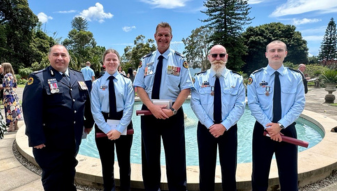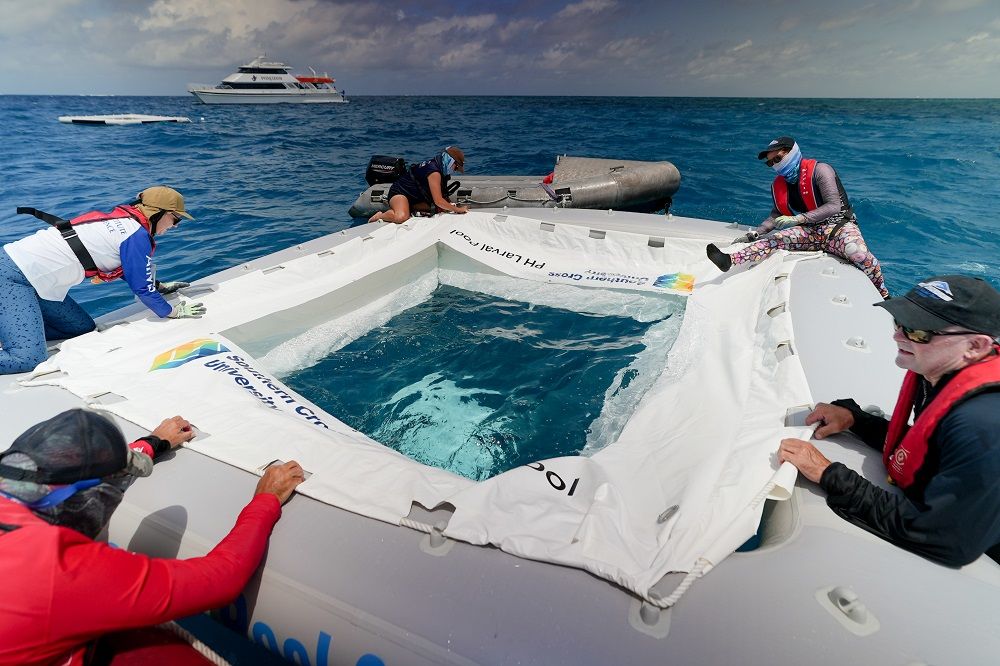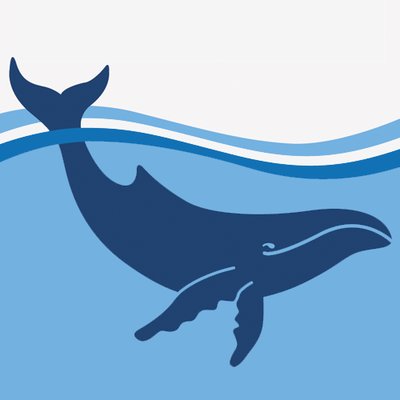Tropical Australia’s first large-scale seagrass restoration project begins this week in Cairns and Mourilyan, aiming to replenish more than 400 hectares of seagrass habitat devasted by cyclones and La Nina weather events more than a decade ago.
Led by James Cook University’s TropWATER, the initiative will see scientists and volunteers planting thousands of seagrass fragments and sowing more than half a million seeds over the next four years.
The project is a collaboration with four Traditional Owner groups, OzFish Unlimited and local community groups, with funding support from BHP’s Blue Carbon Grants program.
JCU TropWATER’s Associate Professor Michael Rasheed, who leads the team, said the project was built on years of rigorous research and trials.
“This is the first time seagrass restoration has been attempted at this scale in tropical Australia. We’ll be working in partnership with community in partnership with communities and leading researchers in the field.
“For more than a decade, the loss of these seagrass meadows has set off a ripple effect, robbing these ecosystems of their remarkable benefits – as a food source for dugongs and green turtles, and as essential nurseries for prawns and fish.
“It’s critical these habitats are restored, not just for the sake of the marine life they sustain, but for the resilience of our coastal communities.”
Seagrasses are coastal marine powerhouses, capable of capturing carbon from the atmosphere up to 35 times faster than tropical rainforests.
Along with re-establishing the seagrass meadows the team will measure these “blue carbon” storage gains, and will monitor the return of fish.
The initiative brings together Traditional Owner partner groups, including Gimuy Walubara Yidinji, Dawul Wuru, Goondoi and Mandubarra, in safeguarding their Sea Country estates.
The donor seagrass for the program comes from Gimuy Walubara Yidinji country in Cairns.
“We’re pleased to extend assistance and share our resources with our neighbouring communities, including Mandubarra and Goondoi in Mamu country to our south,” Gimuy Walubara Yidinji Elder Gudju Gudju said.
“This collaboration will help restore their lost seagrasses while enhancing our understanding of safeguarding our own,” he said.
“Our Rangers are building strong relationships with JCU scientists and creating valuable opportunities for mutual learning. These partnerships empower our community, rangers, and scientists to exchange knowledge. They foster the protection of our remarkable marine ecosystem for generations to come.”
The team needs help from the community for the project to succeed. OzFish Unlimited’s Dr Geoff Collins is in charge of coordinating community and volunteer engagement for the project.
“Preparing seagrass shoots for deployment takes a lot of time and we value the contribution our volunteers have made to this program to date,” Dr Collins said.
“As we continue to expand this work there’ll be an increasing role for volunteers to help improve seagrass meadows, which are important for the health of our coastal fish stocks.
“We’ll be posting regular notifications and events to let the community know when you can come down to the Marina in Cairns, or the Mourilyan Harbour boat ramp, to help prepare the seagrasses for sowing out on site during September.”
The team will restore five hectares of meadows wiped out a decade ago. They will also work to speed the recovery of 425 hectares of meadows that are struggling to recover from cyclone damage and consecutive years of heavy wet season impacts leading up to 2011.
Associate Professor Rasheed said seagrass habitats are interconnected with the health of the Great Barrier Reef, and the loss of meadows can have cascading effects on the entire Reef ecosystem.
“Climate change is causing more frequent and widespread impacts on seagrass meadows, and we need to take steps to future-proof these ecosystems,” he said.
“This project will show effective restoration methods that can be used throughout tropical Australia and a blueprint for measuring their effectiveness at combating climate change and we’re excited to get cracking on the work this week.”







